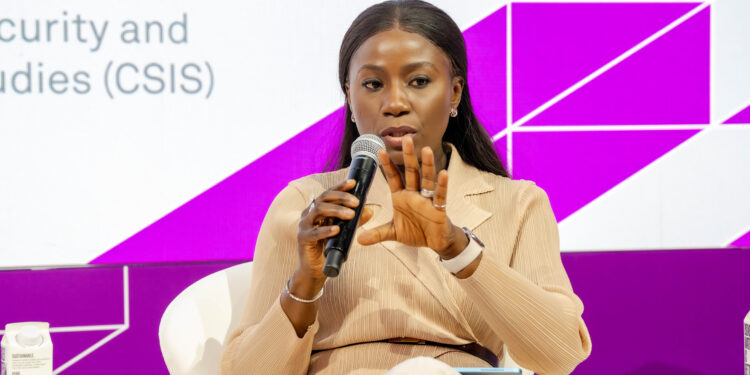The Federal Government says it was committed to removing all the barriers and risks impacting fresh investments in the nation’s power sector.
The Special Adviser to the President on Energy, Olu Verheijen gave the assurance on Wednesday during a session at the 2024 edition of CERAWeek holding in Houston, Texas.

Speaking on the theme: “Energizing Tomorrow: Charting a successful path for Africa’s energy transition”, Verheijen said the government was determined to close the metering gaps for consumers and address the financial liquidity challenges facing Nigeria’s power sector.
Apart from the huge funding constraint as a result of revenue shortfalls by the operators, the government and power distribution companies (DisCos) have continued to complain about the yawning metering in the sector, which was estimated at over seven million as at September 30, 2023.
Panelists at the session moderated by the Research and Analysis Executive Director, S&P Global, Paul McConnell, included the Commissioner for Infrastructure, Energy and Digitisation of the African Union, Amani Abou-Zeid, and the Research Director and Senior Fellow, Energy Security and Climate Change Programme, Centre for Strategic and International Studies, Gracelin Baskaran.
Verheijen said the federal government was working seriously bon a number of initiatives to decentralise electricity transmission to make the supply closer to the markets which are currently grappling with the challenge of growing demand.
n the distribution side, she explained that there were different technologies the government was deploying to ensure more supply of electricity was available, especially to high consuming customers.
Given that the government was constrained by fiscal challenges, the Presidential Adviser explained that a lot of creative initiatives were being implemented to de-risk the power sector and attract more investments.
While the International Energy Agency (IEA) estimated an investment gap of $190bn, she said the government may not be able to raise such funding considering the tight fiscal environment in the country currently.
Despite the constraints, she assured that lots of initiatives were being implemented to unlock the potentials of the sector.
“So, if you look at this scale of investments that are required, you know, some entities like IEA have estimated about $190bn a year. We don’t have the fiscal space for that.
“So, what are we trying to do to make sure we are able to scale faster? We are making sure that we actually, creatively target certain aspects that we think are catalytic to the rest of the entire value chain.
“We launched a presidential initiative recently. What are we using that to do? We say we need about $10bn to double our transmission capacity, we don’t have that. But, maybe we have a fraction of that, and we can actually then make sure we procure metres, convert all of the available six million customers currently available, to pay customers with digital technology and smart metres and make sure we grow revenue that way.
“If we grow that revenue, then we’re able to make sure that we improve the financial viability of this public utilities and attract capital.
“So, that’s an example of how we’re being extremely strategic about the level of interventions we have within our limited fiscal space.
“Once that is done, and we have closed the metering gap, you have to address the financial liquidity issues, that tend to be. When you’ve de-risked that entire value chain, we can then have more capital to that grid and then expand access and grow consumption



